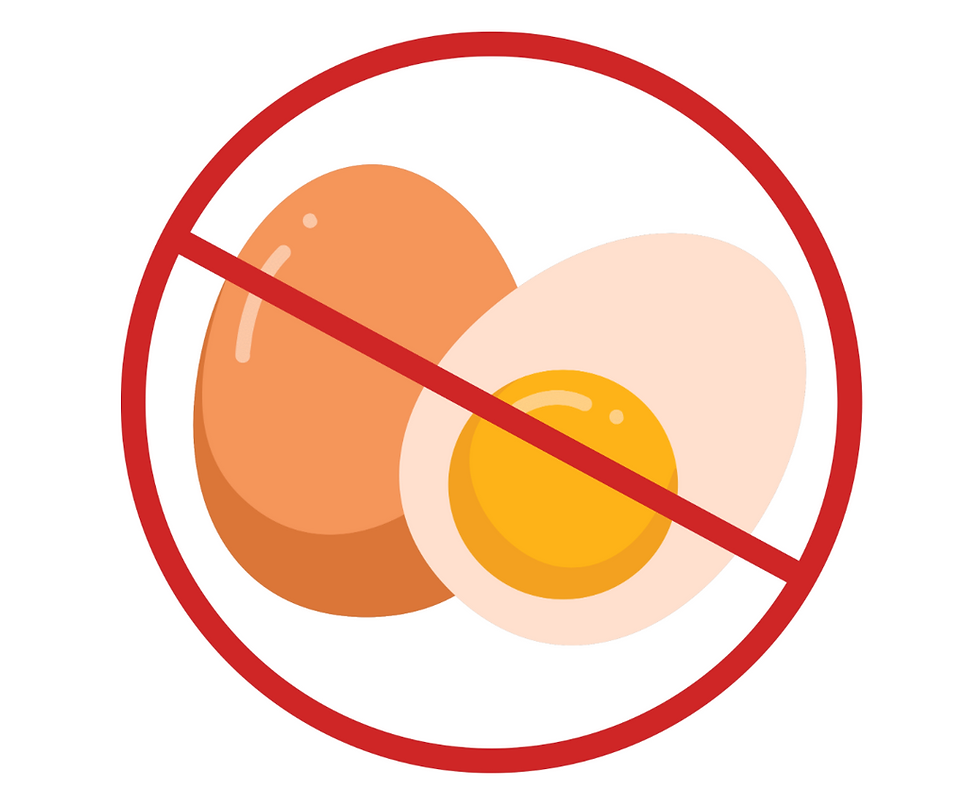How Can Homeopathy Help with Food Allergies and Intolerances?
- Nora Pettik
- Jul 27, 2025
- 3 min read
Updated: Oct 24, 2025
Food Allergies and Intolerances – A Gentle Homeopathic Perspective
Many people today experience unexpected reactions to food—some feel bloated or nauseated after a rich meal, while others develop rashes or fatigue after even small amounts of certain foods. This naturally leads to questions: Is there a way to support my body’s tolerance naturally? Could homeopathy help me enjoy food again without fear?
Homeopathy does not simply focus on the food itself; it looks at the whole person. A professional homeopath studies your physical symptoms, emotional tendencies, and overall constitution to find a remedy that gently restores balance. What is homeopathy? read more

Allergy or intolerance – what’s the difference?
Food allergies involve an immune overreaction, with immediate symptoms like rashes, swelling, or breathing difficulty.
Food intolerances are slower digestive disturbances—bloating, headaches, or sluggishness without true immune involvement.
Both can be approached with homeopathy by an individually selected remedy.
Questions a homeopath might explore
Which exact foods trigger your problems?
Do you feel better in open air, warmth, or after rest?
Do you crave or strongly dislike certain foods?
Are there emotional patterns like stress, anxiety, sadness linked to eating?
Your answers help guide a remedy that matches your unique picture.

Homeopathic remedies often considered
Lycopodium clavatum – For weak digestion and intolerance to onions, beans, or cabbage. Much bloating, gas, and fullness after small amounts of food; symptoms often worse between 4–8 pm.
Calcarea carbonica – For sluggish metabolism, aversion to milk or fats, easy exhaustion, pale complexion, and a chilly constitution.
Arsenicum album – For food reactions with burning pains, vomiting, or diarrhea; great restlessness, anxiety, and thirst for small sips. Read more about Arsenicum here
Nux vomica – For those with over‑sensitive digestion due to stress, stimulants, or late meals; cramping, heartburn, and irritability are keynotes.
Pulsatilla – For gentle, changeable people whose complaints worsen after rich or creamy food; little thirst and relief in fresh air. Read more about Pulsatilla here
Carbo vegetabilis – For extreme bloating and weakness after eating, desire for air or fanning, and inability to digest even simple foods.
China (Cinchona officinalis) – For marked flatulence, distension, and weakness after even light meals; often suited after loss of fluids or prolonged illness.
Sulphur – For long‑standing intolerance with skin eruptions, burning sensations, and strong cravings for sweets or spices. Read more about Sulphur here
Supporting the Gut with Bowel Nosodes
For some individuals, food reactions stem from deeper imbalances in the gut flora. Bowel Nosodes are unique homeopathic preparations derived from specific intestinal bacteria. They are often considered when there is:
Sensitivity to many different foods at once,
Chronic bloating, alternating bowel habits, or long‑standing digestive troubles,
A history of repeated infections or antibiotic use that may have disturbed gut balance.

Examples include Morgan Pure, Proteus, and Bacillus No. 7, each chosen according to its own symptom picture. These nosodes are not a replacement for well‑selected remedies but can work alongside them to strengthen the gut terrain and build tolerance over time, always under the guidance of an experienced homeopath.
A gentle path forward
Homeopathy offers a holistic way to address food allergies and intolerances, aiming not to suppress but to support and rebalance. Many have found that with individualized remedies, their digestion improves, sensitivities lessen, and vitality returns. Read more about what to expect when working with a homeopath
References:
Samuel Hahnemann – Chronic Diseases, Their Peculiar Nature and Their Homeopathic Cure
James Tyler Kent – Lectures on Homoeopathic Materia Medica
William Boericke – Pocket Manual of Homoeopathic Materia Medica
Henry C. Allen – Keynotes and Characteristics with Comparisons of Some of the Leading Remedies of the Materia Medica



Comments